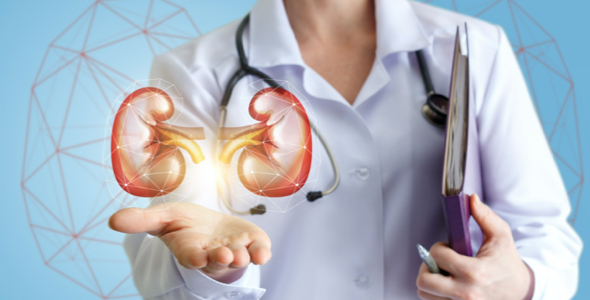By the bioMérieux Connection Editors
World Kidney Day, observed every year on the second Thursday of March, is a global campaign aimed at raising awareness about the importance kidney health, kidney injury, and kidney disease. In past years, World Kidney Day has included hundreds of kidney health awareness events, such as public screenings for kidney health and marathons. Even though participation may look a little different this year due to the COVID-19 pandemic, there is still plenty that can be done to raise awareness for kidney health. Read on to learn more about the kidneys!
What Do the Kidneys Do?
Our kidneys act as filters and chemical factories that play a vital role in keeping our bodies functioning. Through the production of a hormone called erythropoietin (pronounced eh-ri-thruh-POY-tin), our kidneys tell our bone marrow to make red blood cells. By monitoring fluid levels and creating a hormone that constricts our blood vessels, they also manage blood pressure. They also make an active form of vitamin D, which allows our bodies to absorb calcium and phosphorus. When the kidneys don’t work well, the build-up of waste and extra water in the body can cause health problems.
How Does World Kidney Day Help Support Awareness for Kidney Health?
Some of the objectives of World Kidney Day include:
- Highlighting that diabetes and high blood pressure are key risk factors for chronic kidney disease (CKD)
- Encouraging screening of all patients with diabetes and hypertension for CKD
- Encouraging preventive behaviors
- Educating medical professionals about their key role in detecting and reducing the risk of CKD
Acute Kidney Injury & Chronic Kidney Disease
In addition to spreading awareness about CKD, World Kidney Day also serves as a platform to spread awareness about acute kidney injury (AKI). AKI is a common complication of hospitalization, especially when critical illness is present, occurring in up to 20% of hospital admissions. Many studies have demonstrated a strong association between episodes of AKI and the development or progression of CKD. The severity of AKI and the number of AKI episodes that occur over time are factors in this association.
AKI is often caused by serious and sudden loss of blood flow to the kidney or a sudden blockage that stops urine from flowing out of the kidneys. Sepsis is a frequent cause of AKI in hospitalized patients because it can reduce blood flow to the kidneys. “Sepsis-associated acute kidney injury (S-AKI) is a frequent complication of the critically ill patient and is associated with unacceptable morbidity and mortality,” states a review article published at the end of 2019. Because of this, early recognition of both sepsis and AKI are crucial and can help prevent CKD.
To learn more about kidney health and help raise awareness for this important issue, visit the World Kidney Day website.
Opinions expressed in this article are not necessarily those of bioMérieux, Inc.



